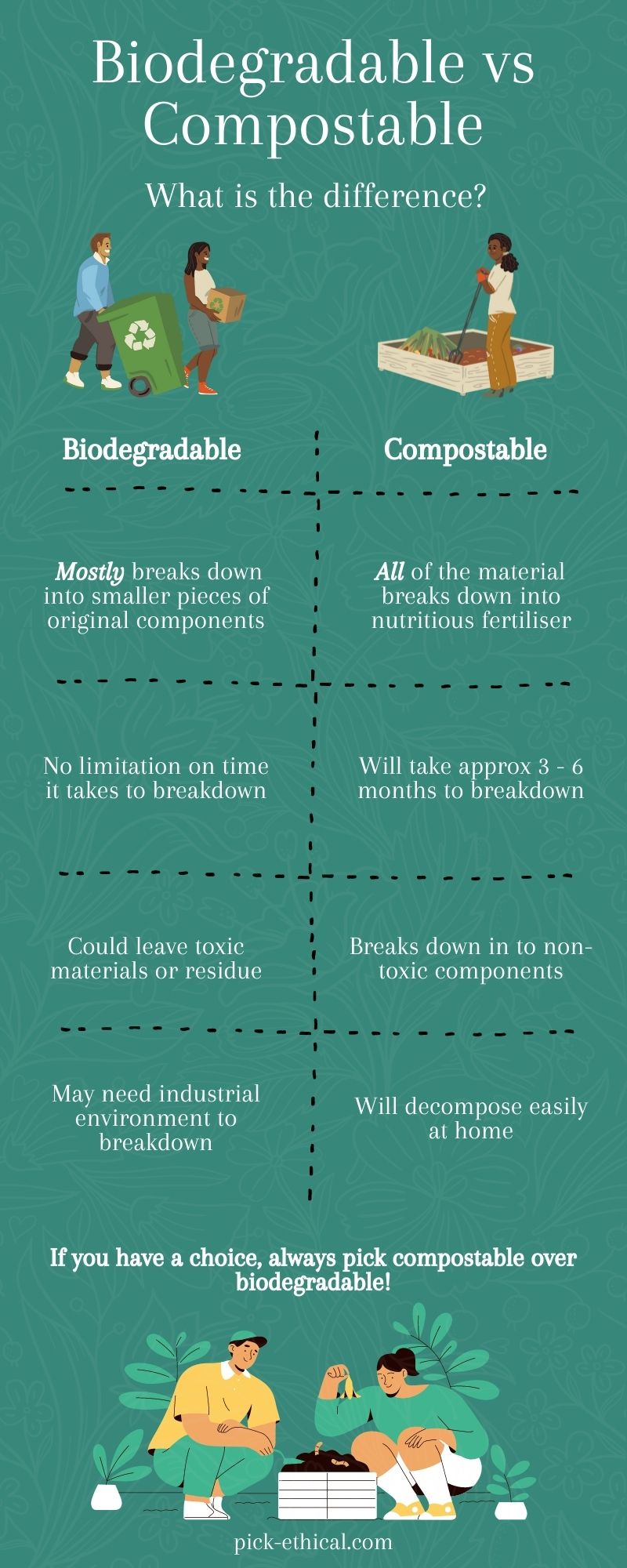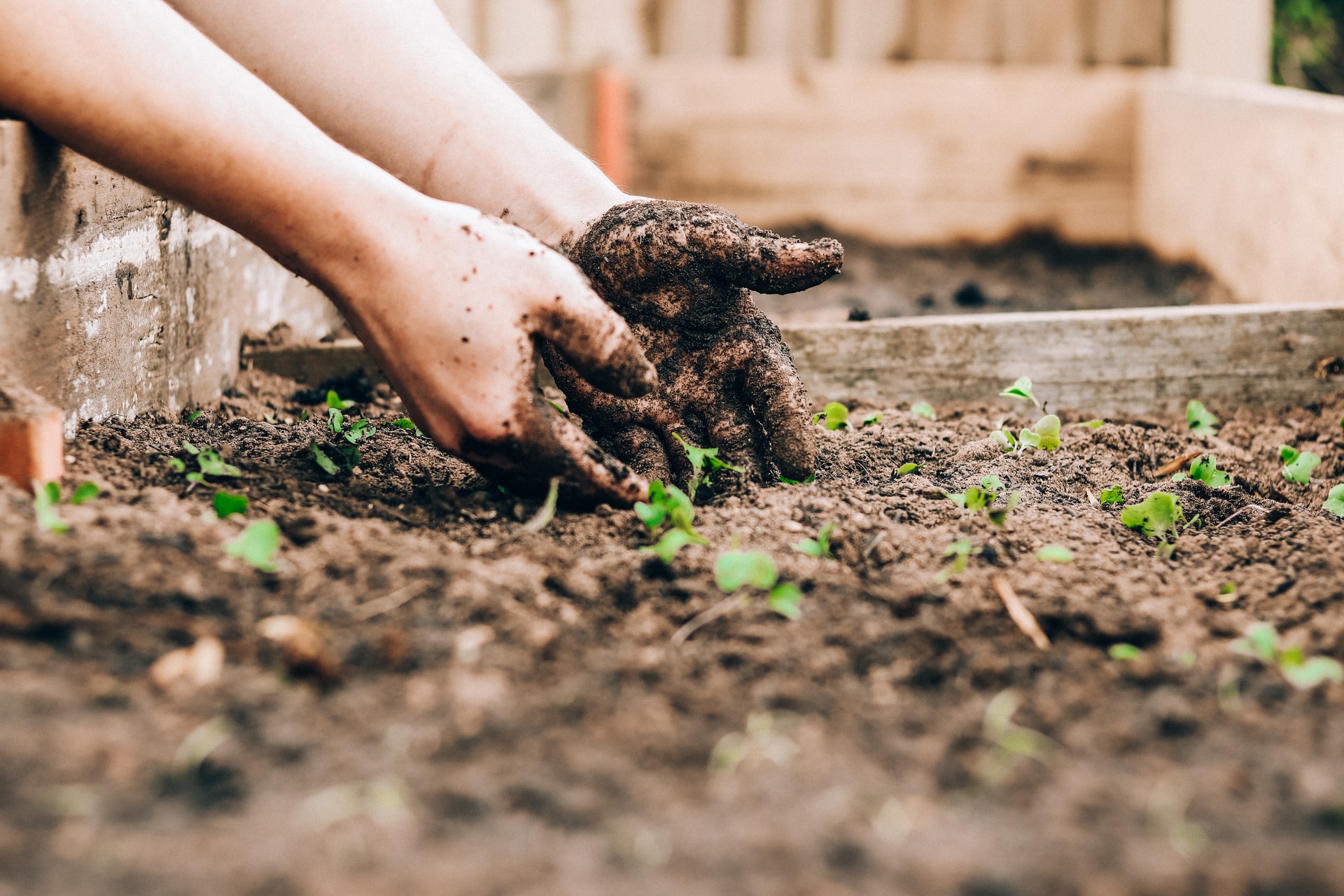Compostable and biodegradable are two words that get thrown around a lot. But what’s the difference between compostable and biodegradable? Is there even any difference?
What does compostable mean?
According to the EPA, compostable means that a product or material that are put in landfill will eventually break down without releasing harmful toxins. The result of this process is a fertilizer that is rich in nutrients and beneficial organisms to improve soil quality.
Examples of compostable items are vegetable peels and scrap paper. Not all compostable items are suitable for composting at home.
What does biodegradable mean?
Biodegradable items are those that break down with the presence of oxygen. These items do not require any special treatment to be broken down, and will eventually return to their original form.
Is Biodegradable the Same as Compostable?
Technically, products and materials that are certified as compostable or biodegradable are both designed to naturally break down, except compostable items can be broken down naturally by microorganisms during composting. Biodegradable items break down without oxygen.
Composting is a natural process that can take three to six months to complete, while biodegradation happens in the presence of oxygen and results in the breakdown of materials into their original components.
Biodegradable items will break down without oxygen and return to their original form as plastics, like polymers, sugars, or oils. The term biodegradable is often used interchangeably with ‘compostable’, even though they are not the same thing.
Compostable items will decompose in a composting environment or industrial composter that has microorganisms at the right temperature and moisture levels. At the end of this process, you’ll have humus- a rich organic fertilizer that can be used on soil. Biodegradable items are also able to decompose without oxygen, but they cannot be considered organic fertilizer because they break down into their original components.

Compostable vs. Biodegradable – Which Is Better for the Environment?
The key question that many people have is, “is compostable or biodegradable better for the environment?” The answer is almost always compostable, as these products will break down easily and quickly at home.
So If you want to feel better about your impact on the planet and not be a part of the waste problem plaguing our planet, then it’s best to choose compostable items over biodegradables. Compostables typically decompose in natural environments, while biodegradables generally need an industrial setting.
Composting at home or at a community garden will ensure that your waste goes back into the earth instead of into a landfill where it could sit for centuries. Biodegradable items could seem like a good option because they’re technically “organic,” but many items will take so long to decompose that they will likely being sitting in landfill for a significant amount of time.





